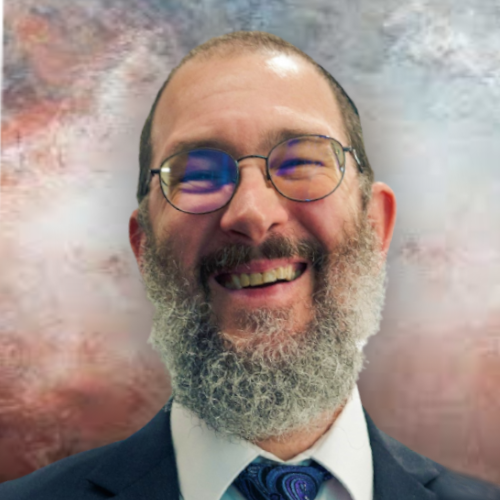
Half a century ago, when I possessed the charming innocence of a 12-year-old, I took offense at the wording of the Pledge of Allegiance.
Why, I wondered, was I expected to pledge my allegiance to a flag? Proclaiming loyalty to my country , I could understand. But to a piece of fabric?
That wasn't all. Having concluded with unshakable, preadolescent self-confidence that human existence is nothing more than a cosmic accident, I found the phrase "under G od" offensive as well.
And so, while my classmates were dutifully reciting the full text of the Pledge, I was quietly editing my own recitation: "I pledge allegiance ... to the United States of America, and to the Republic for which it stands, one Nation ... indivisible, with liberty and justice for all."
By my final year in high school, however, I had acquired enough sophistication to appreciate the importance of symbolism. I no longer resented being asked to swear loyalty to a flag as the embodiment of the noble ideals it represented. I was also less certain about the existence — or nonexistence — of a deity. However, by that time students weren't reciting the Pledge anymore.
And that's a shame. Because it provides young people with an opportunity to ponder this week's entry into the Ethical Lexicon:
Allegiance (al*le*giance/ uh-lee-juhns) noun
Devotion or loyalty to a person, group, cause, or ideal.
For decades now, we have heard from those who object to the phrase "under G od" as unconstitutional. Perhaps they should familiarize themselves not only with the letter but also with the spirit of the Constitution, which can readily be discerned from the writings of the Framers. It was Alexander Hamilton who said:
"The sacred rights of mankind ... are written, as with a sun beam, in the whole of human nature, by the hand of the divinity itself; and can never be erased or obscured by mortal power."
Neither Washington, Jefferson, Madison nor most of the Founding Fathers felt any reluctance to include references to the Almighty in their political discourse, and even less inclination to expurgate it from the public arena. If the Framers weren't afraid to mention G od in the Declaration of Independence, why do so many fear the utterance of His name in our courthouses or schools?
Does their fear stem from the unknown destiny that may meet us when we depart this mortal coil? Or are they desperate to claim moral and ethical autonomy in their actions, their speech and their values?
For the militant atheist, there is no greater dread than the haunting suspicion that he might be wrong, that we might have to account for the way we've lived our lives upon arrival in the hereafter. Every reference to G od challenges faith in the randomness of our existence while raising the possibility that we are not the arbiters of absolute moral truth.
The great Joseph B. Soloveitchik, one-time chief rabbi of Boston and teacher of countless theological scholars, summed it up like this:
"All extremism, fanaticism and obscurantism come from a lack of security. A person who is secure cannot be an extremist."
Indeed, extremism in the form of radical religion and radical nihilism are one and the same. The 19th-century anarchist employed techniques not unlike the suicide bomber of today to advance his own variety of jihad. Modern anarchists, some wearing judicial robes, manipulate the law to advance their cause, supremely confident that they understand the Constitution better than its authors.
It has been observed that the word "ego" is an acronym for "Elbow G od Out." A daily reminder that we should receive our national freedoms with humility is among the surest means of preserving those freedoms for our children and their children after them. Independence Day calls on us to rearticulate allegiance not only to our country but to the values on which it was founded, to subjugate ourselves to those noble ideals that emanate from a source higher than ourselves.
Previously:
• When Seeking Peace, Don't Release the Dogs of War
• Greta Thunberg Sails Toward Moral Hypocrisy
• Checking More Boxes Is Not the Solution
• Why Sometimes NOT Seeing Is MORE Believing
• A Healthy Diet for the Brain Promotes Ethical Clarity for the Mind
(COMMENT, BELOW)
Rabbi Yonason Goldson graduated from the University of California at Davis with a degree in English, which he put to good use by setting off hitchhiking cross-country and backpacking across Europe. He eventually arrived in Israel where he connected with his Jewish roots and spent the next nine years studying Torah, completing his rabbinic training as part of Ohr Somayach's first ordination program. After teaching yeshiva high school for 23 years in Budapest, Hungary, Atlanta, Georgia, and St. Louis, Missouri, Rabbi Goldson established himself as a professional speaker and advisor, working with business leaders to create a company culture built on ethics and trust. He has published seven books and given two TEDx Talks, is an award-winning host of two podcasts, and writes a weekly column for Fast Company Magazine. He also serves as scholar-in-residence for congregations around the country.


 Contact The Editor
Contact The Editor
 Articles By This Author
Articles By This Author